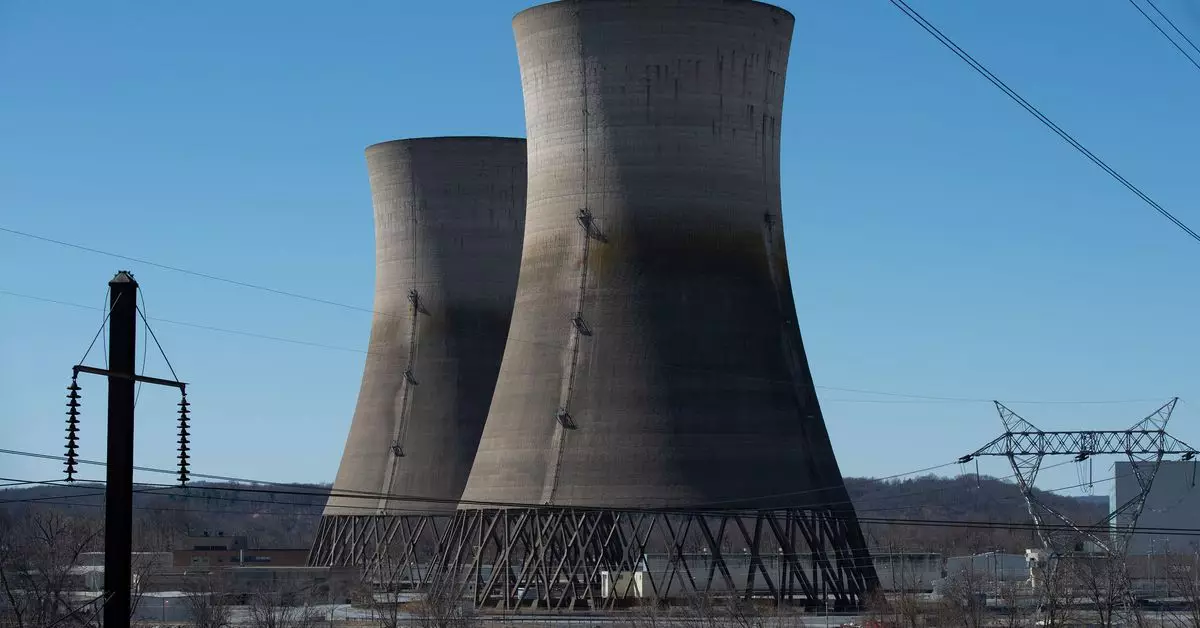In a groundbreaking development for both the tech and energy sectors, Microsoft has struck a significant deal with Constellation to revitalize the Three Mile Island nuclear power plant. If this agreement receives regulatory approval, Microsoft will secure exclusive rights to 100% of the plant’s energy output, a move that reflects its commitment to bolster its artificial intelligence infrastructure. The revival of the nuclear facility, which has a dubious history and was shuttered for economic reasons, signals a strategic pivot as the tech giant seeks robust energy sources to power its ambitious AI initiatives.
The energy demands of modern data centers are immense, and as Microsoft expands its AI capabilities, the necessity for a reliable, clean, and potent energy source becomes ever more pressing. The Three Mile Island plant, once a site of contention due to its troubled past, boasts the capacity to generate 837 megawatts, which is sufficient to provide power to more than 800,000 households. This starkly illustrates the scale of energy Microsoft requires to support its data centers and comply with its aggressive timeline for achieving carbon neutrality by 2025.
Reimagining the Three Mile Island facility as the Crane Clean Energy Center—named in honor of the late Chris Crane, former CEO of Exelon—adds a layer of significance to this venture. It not only revitalizes the energy landscape but also potentially reshapes public perceptions around nuclear energy, fallen victim to stigma following the catastrophic 1979 incident.
The urgency for more sustainable energy sources has never been higher, especially in light of increasing greenhouse gas emissions linked to AI advancements. Microsoft’s arrangement with Constellation could play a crucial role in mitigating these emissions. According to Bobby Hollis, the vice president of energy at Microsoft, the agreement is “a major milestone” towards the company’s goal of decarbonizing energy sources and facilitating reliable energy production.
As part of a larger strategy to integrate clean energy into their operations, Microsoft has been vocal about its commitment to running its data centers on carbon-free energy by 2025. The move to nuclear power through this agreement with Constellation positions Microsoft as a leader in the tech industry’s transition toward sustainable solutions. This could also serve as a compelling blueprint for other corporations grappling with their own energy consumption and climate responsibilities.
The path to bringing the Three Mile Island plant back online is laden with challenges. Constellation is poised to invest $1.6 billion to refurbish the facility, but this investment hinges on securing necessary approvals from regulatory bodies. The Nuclear Regulatory Commission will play a pivotal role in reviewing safety measures and compliance associated with revitalizing this plant. Additionally, state and local agencies must grant the required permits, which complicates the timeline for potential operations in 2028.
The complexities of nuclear energy regulation present a substantial hurdle, and the commitment to pursue a license renewal to extend operational capabilities until at least 2054 underscores the long-term vision behind this venture. As Constellation embarks on this ambitious journey, the interplay between regulatory frameworks and private investment will be critical in determining the feasibility and success of this ambitious revival project.
As sustainability emerges as a non-negotiable standard across industries, this endeavor by Microsoft represents a broader trend of technological firms embracing nuclear energy as a viable solution for their power needs. With co-founder Bill Gates advocating for the role of next-generation nuclear reactors, the narrative around nuclear power is beginning to shift, emphasizing its potential as a critical ally in the battle against climate change.
This partnership may not only reinvigorate the Three Mile Island site but also redefine the future of energy consumption in tech. As companies like Microsoft take proactive steps to integrate nuclear energy into their operations, the discussion surrounding energy, climate responsibility, and technological advancement will likely evolve, paving the way for innovative and sustainable solutions in an increasingly energy-hungry world.


Leave a Reply
You must be logged in to post a comment.